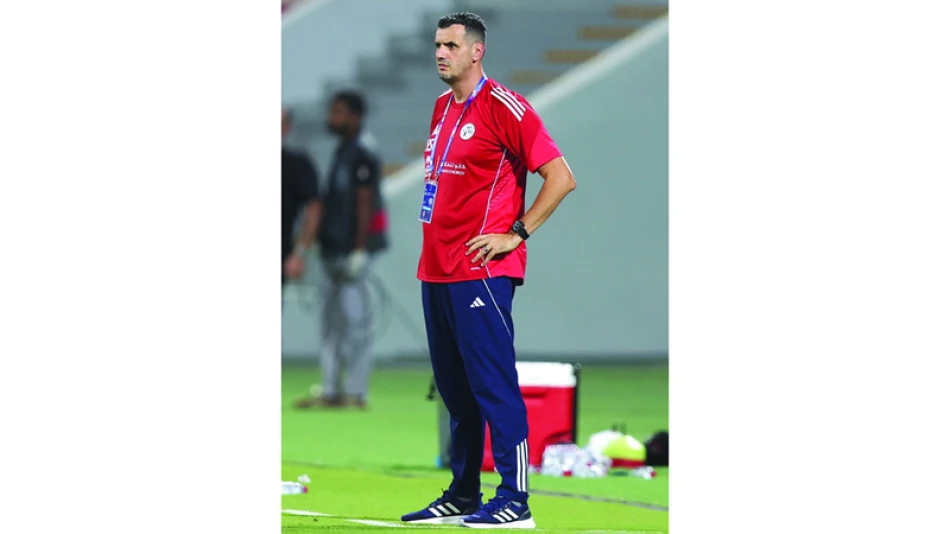
Former Al-Mokawloon Al-Arab Captain Sarrar Embraces Responsibility After Amuta's Departure
Al Jazira's Tactical Rebound: How a Coaching Change Sparked UAE League Revival
Al Jazira's stunning 1-0 victory over Sharjah has demonstrated the immediate psychological impact of coaching transitions in professional football, as interim manager Hamza Sarrar transformed a demoralized squad into title contenders within days of taking charge. The win not only salvaged the team's early season prospects but highlighted the delicate balance between tactical preparation and player mentality in the UAE's premier football competition.
The Psychology of Fresh Leadership
Sarrar, who stepped in after Moroccan coach Hussein Ammuta's dismissal following a shock defeat to Khorfakkan, attributed the victory to collective responsibility rather than individual brilliance. "The secret to this win lay in the players themselves, feeling the great responsibility, alongside studying the opponent well," he explained, emphasizing that coaching accounts for only 30-40% of match outcomes.
This tactical shift from individual play to collective unity reflects broader trends in modern football management, where psychological preparation often trumps technical adjustments. Similar transformations have been witnessed across global leagues when interim managers inject fresh energy into underperforming squads.
Mental Preparation Over Technical Tweaks
Rather than overhauling Al Jazira's tactical framework, Sarrar focused on mental and tactical preparation during the brief period between his appointment and the Sharjah clash. This approach mirrors successful interim appointments worldwide, where confidence-building takes precedence over complex system changes.
Market Implications for UAE Football
Al Jazira's rapid turnaround carries significant implications for the ADNOC Pro League's competitive balance and commercial appeal. The club's ability to bounce back against a strong opponent like Sharjah on their home turf demonstrates the league's unpredictability—a crucial factor for broadcast partners and sponsorship valuations.
Team supervisor Hussein Suhail acknowledged the performance exceeded expectations, noting that "any change gives players a kind of liberation, alongside their sense of responsibility." This phenomenon, well-documented in sports psychology, often creates short-term performance spikes that can reshape entire seasons.
Strategic Timing and Squad Quality
The victory's timing proves particularly valuable, with an upcoming league break allowing Al Jazira's board to reassess multiple organizational aspects, including the permanent coaching appointment. Sarrar's confidence in the squad's quality—claiming "any world-class coach would dream of working with the current group of Al Jazira players"—suggests the club possesses the talent foundation necessary for sustained success.
Broader Context in Regional Football
Al Jazira's situation reflects wider patterns in Gulf football, where coaching changes often serve as psychological reset buttons rather than purely tactical adjustments. The UAE league's increasing professionalization demands consistent performance levels that can make or break seasons within the opening rounds.
The club's ability to defeat Sharjah away from home, despite the emotional turbulence of recent weeks, indicates resilience that could prove decisive in title races. Such mental fortitude becomes increasingly valuable as regional leagues compete for Asian Champions League positions and continental recognition.
Looking Forward: Sustainable Success
While Sarrar's immediate impact appears positive, the real test lies in maintaining this momentum beyond the initial honeymoon period. The upcoming break provides crucial time for tactical refinement and permanent structural decisions that will determine whether this victory represents a temporary bounce or the foundation for sustained improvement.
The integration of psychological preparation with tactical discipline—evidenced in Al Jazira's disciplined performance against quality opposition—suggests a methodology that could influence coaching approaches across the region's developing football landscape.
Most Viewed News

 Sara Khaled
Sara Khaled






